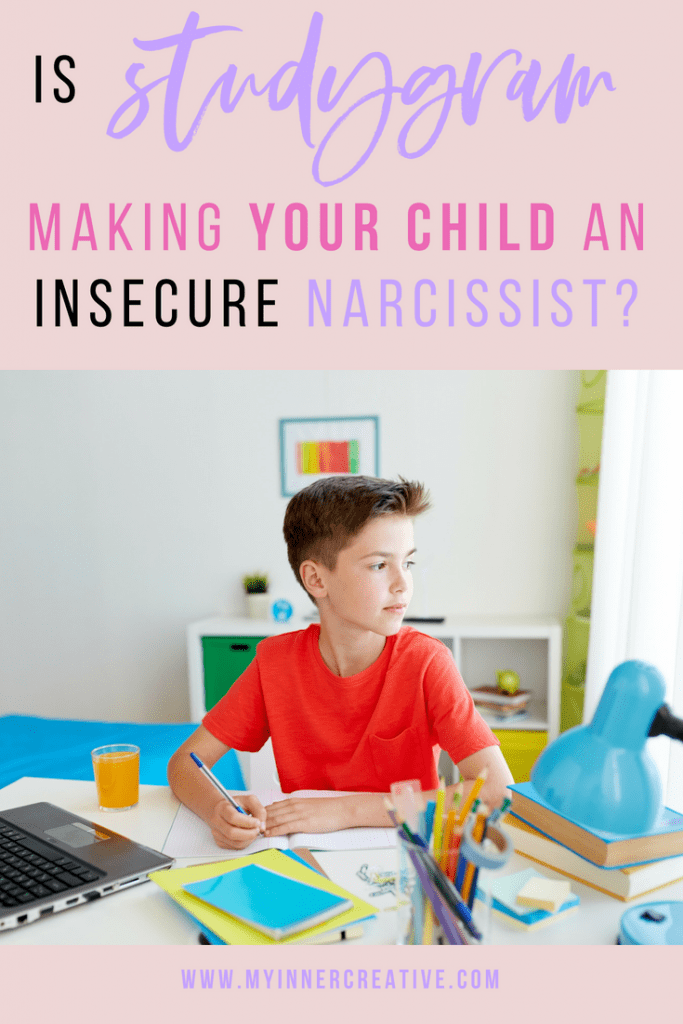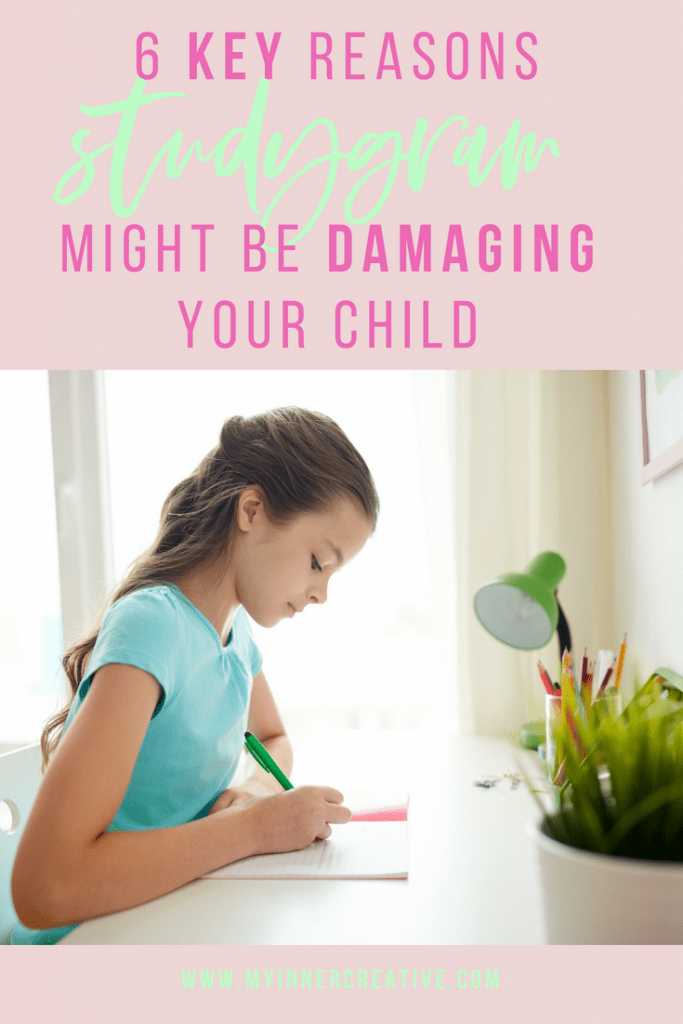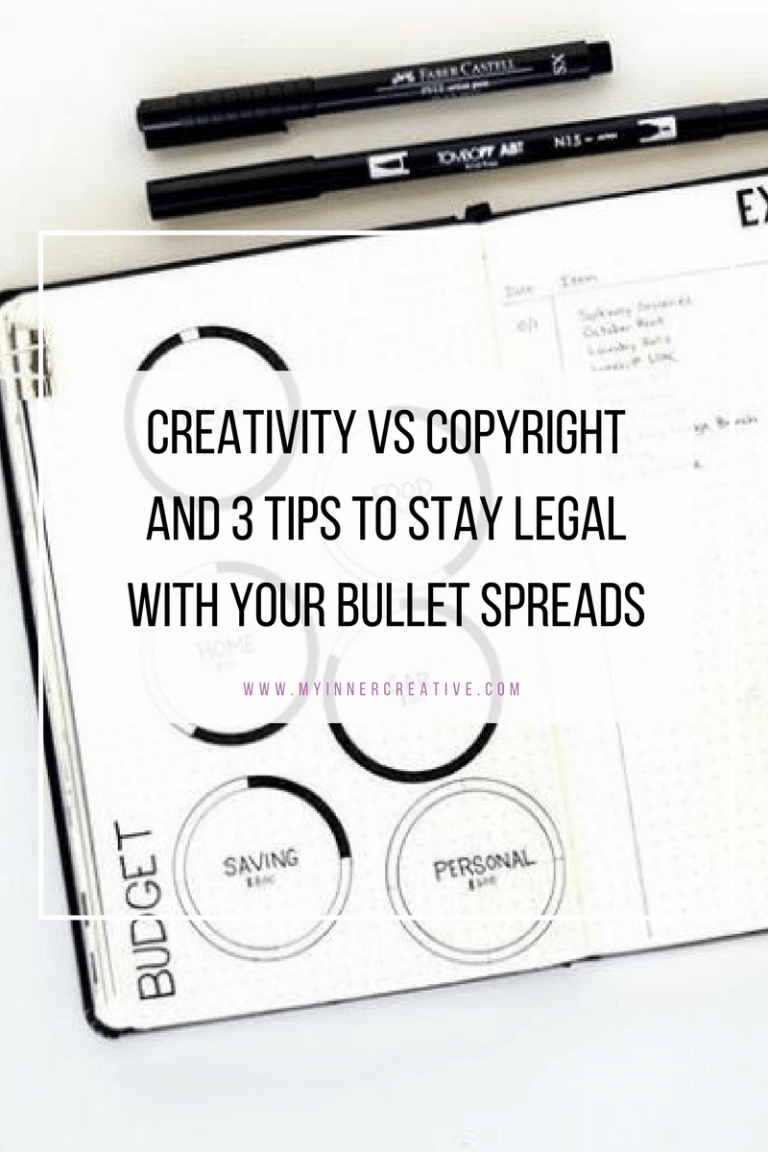My concerns about Studygram – Is your child at risk?
So about a week ago I asked the question what is studygram and how does it help kids, or teens? Or is it a trap of comparison for people. My concerns about studygram stretched from the age limits to the public profiles, the tens of thousands of followers and the free stuff. So so many concerns!
The reason this came up was that a 14 year old child – with a massive public following was hosting a giveaway – which you had to be 18yrs or older to enter…..hmmmm…..
This then coupled with a 13yr old Direct messaging me about providing them product to promote on their small page for advertising….when I went to have a nosey at the page – the child was in a number of poses – in short skirts, provocative….I was astounded. Literally gob smacked.
1. What does Instagram say about children on Instagram?
According to instagrams policies:
Instagram requires everyone to be at least 13 years old before they can create an account (in some jurisdictions, this age limit may be higher). If your child is younger than 13 and created an account on Instagram, you can show them how to delete their account.
If you’d like to report an account belonging to someone under 13 or if you believe someone is impersonating your child who’s under 13, please fill out this form. In order to delete a child’s account, we’ll need to verify that the child is under 13.
In thier terms of use – they clearly state: You must not be a convicted sex offender.
So how do they check this? I’ve never been screened or police vetted (not that I have been convicted of an offence in my life – but hell – I wasn’t checked – then name one person who is!)
So now you have children – under the age of 18 posting whatever they want on instagram looking to be instafamous. When I dug deeper into instagrams policies I found this statement:
We have zero tolerance when it comes to sharing sexual content involving minors or threatening to post intimate images of others.
Ok – fair enough they are clear about this – however we now start blurring the lines a little when we go outside the norms of just your friends following you – In the instagram guide for parents – instagram states the following:
For many kids, part of the fun of Instagram is developing a big following—a good thing for parents and kids to talk about. Having a public account on Instagram means anyone can follow you.
A private account means that you have to approve anyone who wants to follow you, so many parents have their kids start using Instagram with a private account. But there’s no guarantee your child won’t be seen on Instagram or any other photo-sharing service, because people post photos of each other.
Even not having an Instagram account can’t ensure a child won’t appear in a photo there. How positive or negative a young person’s experience is on Instagram or anywhere online depends as much on the person and his or her friends as on the app.
Ok but what does this then say about running giveaways by kids?
In instagrams policy guidelines it says the following about managing contests or competitions and giveaways:
If you use Instagram to communicate or administer a promotion (example: a contest or sweepstakes), you are responsible for the lawful operation of that promotion, including:
-
The official rules;
-
Offer terms and eligibility requirements (example: age and residency restrictions); and
-
Compliance with applicable rules and regulations governing the promotion and all prizes offered (example: registration and obtaining necessary regulatory approvals)
Ok – so how does this translate to the case of the 14 year old running a competition? Well – this was facinating – in their country they have to be 18 or older to legal run a competition. This means that while they have over 100 thousand followers – it doesn’t make them exempt from the law. However – should it then go to court – essentially – will the child then be tried as an adult or as a child based on them using the platform for gain and promotion.
So this then got me thinking – Here is a kid – a kid 14 is still a kid – with over 100 thousand people seeing their account a day. Of those – might be other kids – 13 whatever age – then there might be a small percentage of those people that have mental health issues or preditory issues that are seeing this kids account every day, and has full access to all the kids commenting and liking these posts – easy to target demographic.
2. How damaging is Studygram to kids?
In a post I did earlier in the year – I did some research on how Instagram is creating narcissists – and this became evidently clear when I young women (19) messaged me asking what she’d done wrong. And lets be clear – this hasn’t been the only one. Her message below:
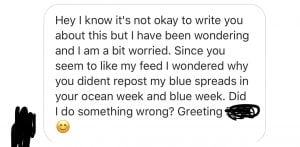
Ummmm – This raised all the red flags for me – firstly her account is awesome – but she was so fixated on me sharing her work, getting more followers and interaction. I was again gob-smacked. Where is this poor kids head that being featured on my account means she’s doing well or not. So is it that instagram has created this compete-complete for positive reinforcement mentality? She should be creating her work to make her happy or the people around her happy – not to be liked and followed on instagram – by what I can only describe as ghost people – because really – they don’t actually exist do they? What the hell did we do before instagram?
So why do I think this is damaging our kids? Well we are setting them up to base their value and worth on how many followers or likes they got over the work they have actually done that makes THEM feel good.
We are also creating kids that are insecure – is my work good enough to post? Is it as good as xxx or will people like it? Fuck that. The questions should be – wow – I am so pleased with the work i have created – I am going to share it with people and not give a flaming dam. But this doesn’t happen does it? There are millions of users on Instagram – and if I use the demographics from my research projects earlier in the year the demographics are pretty similar ages 18-24 mainly women (90%+). And how accurate is this? How many kids younger than 18 have said they are 18? Or how many kids younger than 13 have said they are 13 to get onto Instagram?
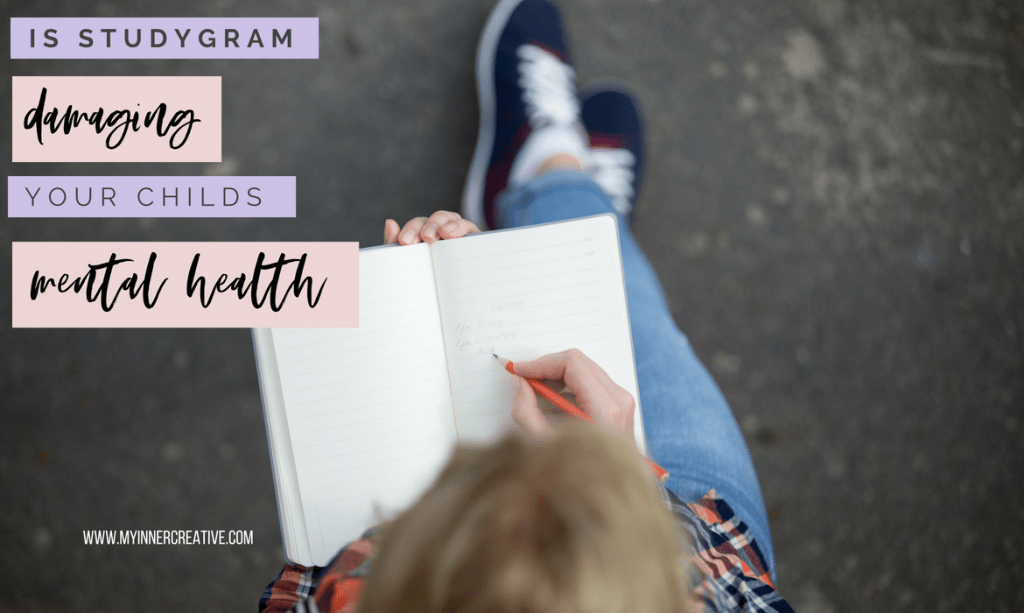
3. What are the implications for brands?
Well shit – this should be pretty obvious and I am sure there are brands that dont care – but essentially – A brand manager or brand administrator, is randomly contacting a minor (stranger danger much) – and offering them free goods or money in exchange for advertising. Now – justing thinking out loud – and Ill google it in a second – but isn’t that technically child labour?
Ok – so maybe not child labour in the true sense of the definition (now that I have googled it) which is:
Child labour refers to the employment of children in any work that deprives children of their childhood, interferes with their ability to attend regular school, and that is mentally, physically, socially or morally dangerous and harmful. This practice is considered exploitative by many international organisations.
So lets break this down – granted we aren’t depriving the children of a childhood – however this could be argued that kids is spending a majority of time on social media and not interacting with the children around them? So then are we interfering with their ability to attend school? Perhaps – they might believe that this instafame is going to last a life time but thats really assumption-y of me so ok not really. Then is it mentally, physically, socially or morally dangerous? In this particular area I would say absolutely. We have no idea the impact that this is having on young children, if Studies have shown narcissistic behaviors in teens and adults using instagram, I would HATE to think the damaging effects on a child.
Then the final question – is it considered exploitive? Ooffff – I think this is a part where arguments can start – So In my mind – a brand that is sending these kids with massive followings free stuff – where usually they would PAY a micro-influencer $150 or more a post – are now getting the same benefits from a kid who just likes the idea of getting free things. I don’t know, but in my mind – that sounds pretty exploity. And these kids are also now exposed to millions of random people, from all over the world.
So what if they getting paid? Apparently in the USA
Children under the age of 13 cannot generally be employed, although local authorities can grant licences for paid performances, sports and modelling. They will only be granted if the authority is satisfied that the child is fit for the work, that proper provision has been made for their health and welfare, and their education will not suffer.
4. Children breaching copyright law
Copyright law is one of the few laws that run similarly over all countries in the world. I could seriously go on and on and on about this. I think this has almost turned into a rant post about kids using social media and the pile of concerns its raised in my mind.
I have seen more than once these kids landing in a bit of social warfare about copyright infringement and using other peoples images without the understanding that when they signed up for Instagram, they signed a series of policies and terms and agreements that said they would not copy peoples work – however they might be too young to understand the implications of this.
In this particular incident I took a 14 to task for blatantly copying other peoples work – this was the response:
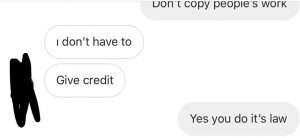
So what happens if someone sues or charges these kids with copyright infringements? In the states there have been a number of cases where kids have been taken to court, but its their parents who get punished for this?
In one case of 12 accounts of copyright infringement the outcome as follows:
Ultimately, the parents would be held financially liable for the infringing acts of their minor child in most cases.
If this involves a cease and desist letter, I would say that the first thing your child should do is to cease and desist from the allegedly infringing activity until you have consulted with a copyright attorney.
In another aspect of American law the following was stated on the National Law website:
The minor can be sued, yes. But because the minor usually doesn’t have a lot of money, the case is likely to be rapidly settled or handled differently. Depending on the situation, the parents or whoever is providing the minor internet access might find themselves sued instead or in addition. Then they can recover money, and penalize whoever should have been better monitoring the minor’s internet use.
And though it is possible to be charged with criminal copyright infringement and go to jail over it, most minors usually wouldn’t be engaged in activity of the type that would result in that.
So while the child can be held criminally responsible, the parents wear the brunt of the litigation. How is that fair? So here we have developed these kids that are now a narcissists who don’t get consequences because their parents have to foot the bill? That is literally pure insanity and I think something needs to be done to deter or stop the positive stigma around being instafamous. I might even cover the negative of being instafamous in another post because right now I am still fuming that I am part of a culture that promotes and tolerates this sort of “child grooming”
5. Social and Cultural Sensitivity of children on Instagram
This is another aspect of this rant I am critically concerned about – the children running these huge accounts have no idea at this stage or have the mental acuity or emotional intelligence to understand what cultural sensitivity is or even cultural appropriation. And again this could land them in hot water as not all their followers are naive kids too. I have seen countless posts that slander cultures or draw from a culture without understanding the meaning. Just another issue in the raft of issues this has been brought to my attention.
6. So is studygram inherently bad for my child?
In my mind – its a bit of both – if your kid is semi adult – 17 and older – and needs help studying then yeah – totally go for it – but there needs to be some sort of understanding that what they see on instagram isn’t really real and that the work they do has no relevance and that they shouldn’t rely on the likes or follows to feel worth. In saying this though – overall – the greater majority of students are supportive of each other and the studygram culture is a pretty supportive community. Even with the supportive community environment, your child is still exposed to brands approaching them to promote free stuff, or even paying them – it doesn’t take long to set up a paypal account.
The general age range of study gram is 13-24 so expect there to be some childish behavior – you are dealing with kids. As parents it is our responsibility to educate our children on copyright law, how it works and what it means to you. Hosting giveaways as an underage person might land you in the hot water, or even in the courts – or even around copyright infringements and having you foot the bill for lawyers and much more.
So think about it – talk about it and have a strategy in place to support your child should they decide they want to be instafamous too.
